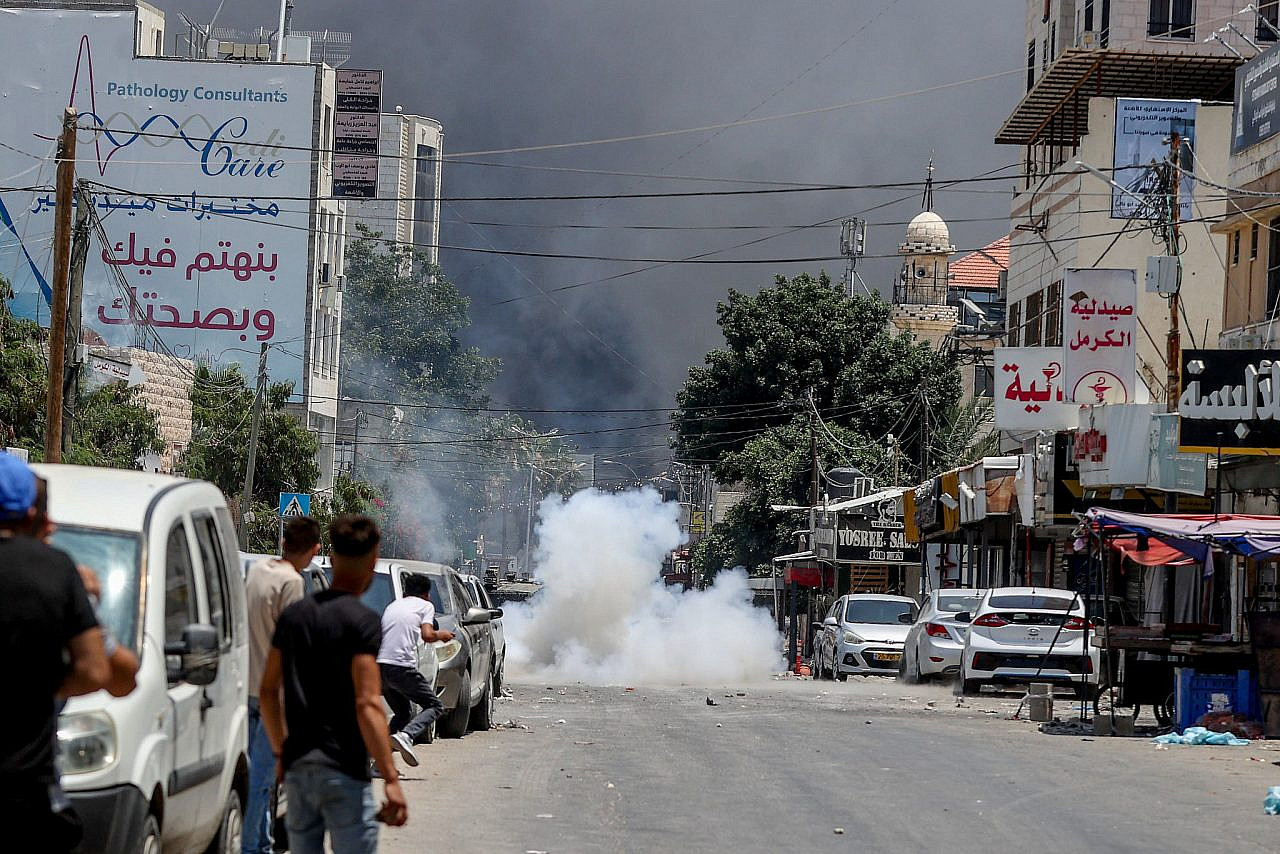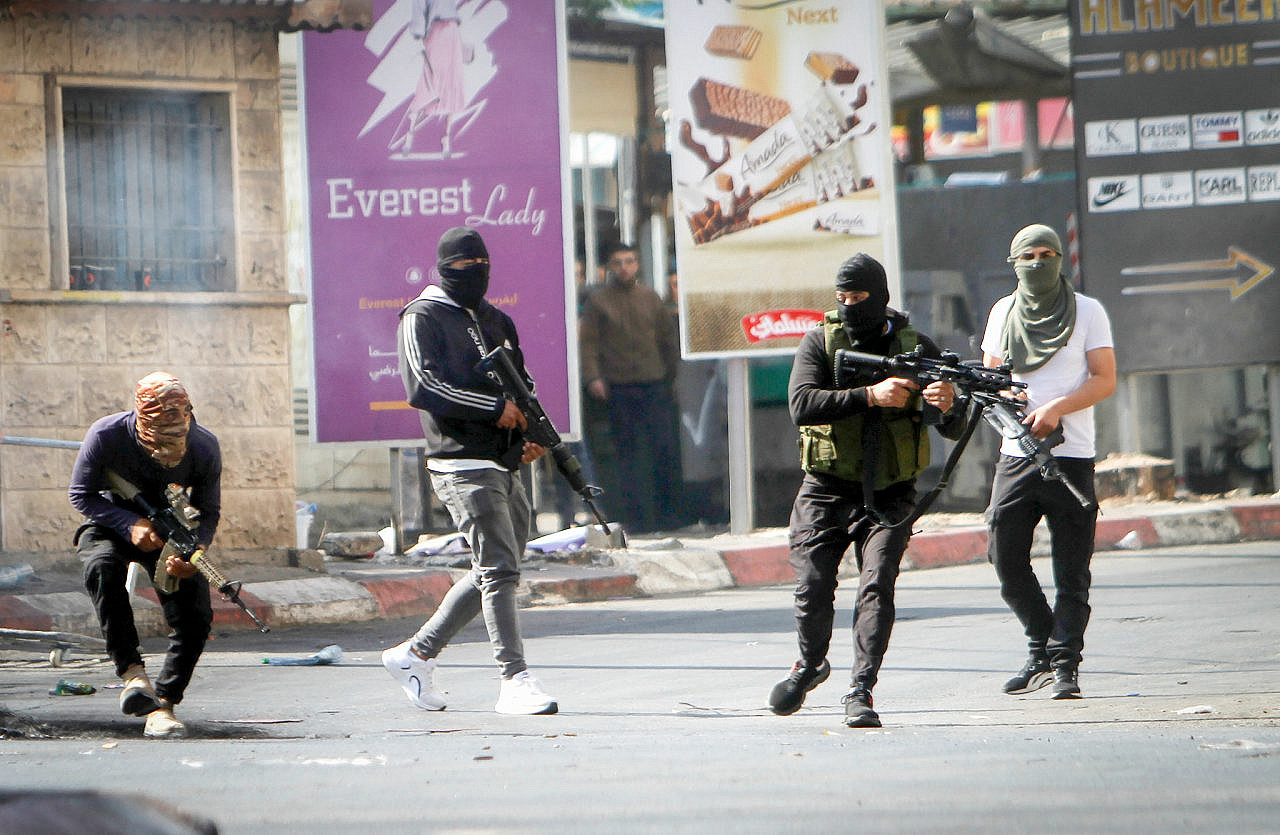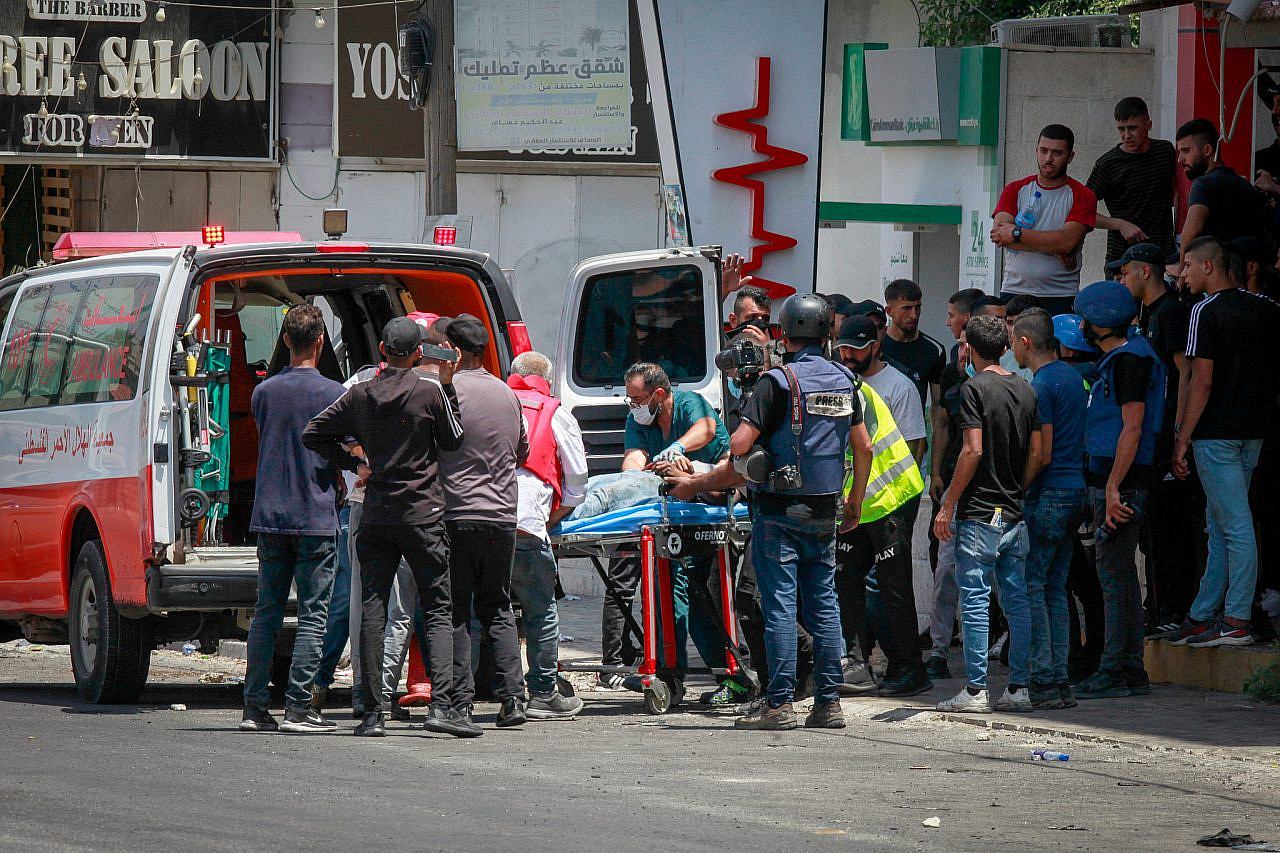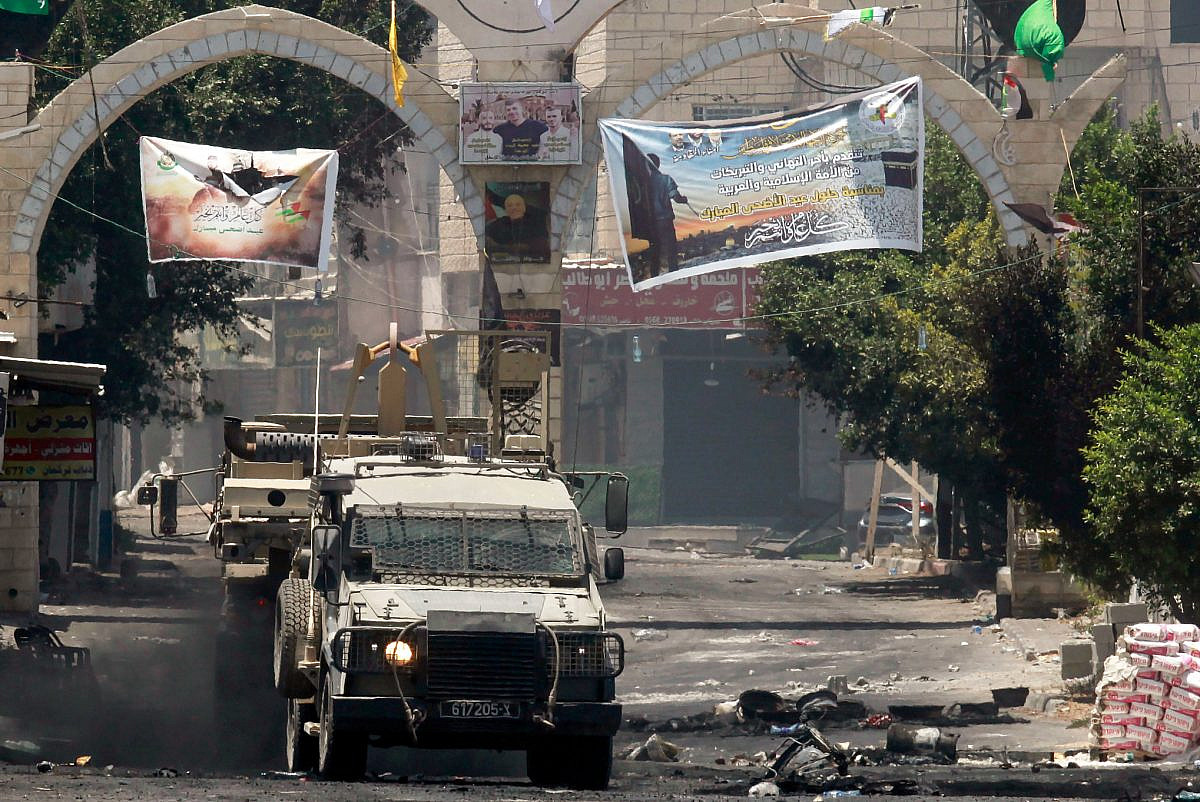The Israeli army’s bombardment of the Jenin refugee camp has entered its second day. Fierce fighting continues inside the camp after the exodus of around 3,000 Palestinian residents last night at the orders of Israeli forces. Ten Palestinians have already been killed and more than 250 wounded in what residents are describing as the worst incursion since the massacre of 2002, when the army stormed into Jenin as part of “Operation Defensive Shield” during the Second Intifada.
Amid this ongoing escalation, Palestinian journalists are being prevented from covering what is happening inside the camp. Videos emerged yesterday of Israeli snipers shooting directly and repeatedly at gear belonging to a camera crew from Al Araby TV and other freelancers, who had been transmitting live footage soon after the invasion began. The journalists were then reportedly besieged inside a home for more than two hours, unable to move or document at all.
Such targeted attacks on journalists — which led the Palestinian Information Ministry to appeal for their urgent international protection — raise grave concerns about press freedom and the safety of reporters documenting Israeli military operations in the occupied territories.
As a result of these attacks, most journalists have been left with no choice but to remain on the outskirts of the camp — and even there they are not safe. Others attempted to document from nearby hospitals where they were able to speak to wounded survivors, but there, too, they came under fire from the Israeli army’s tear gas and live bullets.

‘You start replaying your whole life like a film’
Nael Bowetel is a senior Palestinian journalist, working for Palestine Satellite Channel and Xinhua News Agency, who has been covering the West Bank since 2005. He and another journalist were caught up in clashes between Israeli soldiers and Palestinian fighters for 15 minutes yesterday, which caused them to fear for their lives.
“We tried to enter the camp because the footage we collected from outside isn’t reflective enough of what’s happening,” Bowetel explained. “Outside the camp, soldiers were spread out in the streets, snipers were on rooftops, and Palestinians were far away lighting tires on fire in the street in protest. But we wanted to document the clashes [inside the camp], the bulldozers bulldozing the streets, the destruction, the demolitions of houses.”
As soon as they reached the edge of the camp, however, they immediately came under fire. “Clashes started between the soldiers who were standing right in front of us and the Palestinian fighters. Israeli snipers on the roofs surrounding the area started firing too. Suddenly we were caught in crossfire, so we ducked down and hid behind the wheels of a car because the bullets were flying around us.
“I started thinking about how we can escape, because the bullets were hitting the ground around our legs, they were hitting the walls around us,” he continued. “[I was thinking that] if we stay, we will be hit for sure and become victims of those clashes. We were swimming on the ground, scrambling with no focus. As they say, you start thinking of your whole life and replay it like a film. I started thinking about my family. We tried to call the ambulance to rescue us but they couldn’t get to us because it was extremely dangerous in the area.”
Luckily, the two journalists managed to escape once the clashes subsided — and Bowetel has no hesitation about going back into the camp today. “I will try again, but as always, I will be careful. I never go into the field without a helmet and a vest. I was shot by the Israeli army many times before, so I know where to go and how to take cover. I went through many trainings for safety during war coverage.”

Five years ago, Israeli soldiers fired a tear gas canister at Bowetel while he was covering an arson attack by Israeli settlers in the Palestinian town of Duma near Nablus, which killed three members of the Dawabsheh family. The canister caused a severe burn on Bowetel, leaving a scar that is visible today. Two years later, the army shot Bowetel in the leg while he was covering clashes at Beit El military checkpoint near Ramallah. He has also sustained less severe injuries from being hit by a rubber-coated bullet fired by an Israeli soldier, and being hit in his protective gear. “It’s not that bad — you bruise or get startled, but that’s it,” he says, brushing it off.
‘It makes you feel incapable of doing your job’
Ahmad Al-Bazz, a freelance Palestinian journalist who is also a member of the Activestills photography collective (a partner of +972 Magazine), has also been trying to enter Jenin refugee camp to cover the invasion. He told me what he’s been experiencing in voice notes recorded over the buzzing of Israeli aircrafts and drones overhead. At one point, shooting could be heard very close by, at which point he paused his speech before resuming after the shots stopped.
“I arrived in Jenin at 13:00 after the operation had started the night before,” he recounted. “The road I took from Nablus to Jenin was hard. All the exits from Nablus in the direction of Jenin were closed off by the army. When I entered Jenin city, everything was shut down and no one was in the streets. I saw the smoke rising to the sky from the camp. We started taking photos from a nearby hill and gradually approached the camp.”
“The streets were full of rubble and smoke, more than the usual invasions the Israelis carry out in different West Bank cities,” he continued. “We stationed ourselves at a hospital near the camp and found all our journalist colleagues stationed there or at another hospital. They told me that no one is able to enter the camp [because it is too dangerous]. Yesterday morning, five journalists entered, and the soldiers shot at their camera and gear, then blockaded them inside a house for two hours until medics rescued them in an ambulance.
“Since then, no other journalists went in as far as I know,” he said. “It makes you feel incapable of doing your job because you cannot enter. We are reporting from the outside, taking information from people who exit the camp.”

The main reason for journalists’ inability to enter the camp, said Al-Bazz, is the Israeli army, which is “not neutral with the journalists and not letting them do their job. Some journalists were ordered by their employers not to go into the camp because it is too dangerous. The ambulances can barely get in. Even yesterday at the hospital they fired tear gas. Today the army closed all entrances and no one is able to enter the camp. Journalists are now covering the events from the rooftops of nearby hotels and hospitals.
“The plan of journalists is to wait for the Israelis to withdraw or get away a bit, and then enter the camp,” he added. “As you can see online, the coverage is not very good. The scale of the destruction and demolished houses we see is nothing compared to reality. The footage from inside the camp is coming from Palestinian [residents] posting on social media. I do not think anyone will try to go in because the situation is as dangerous as yesterday.”


